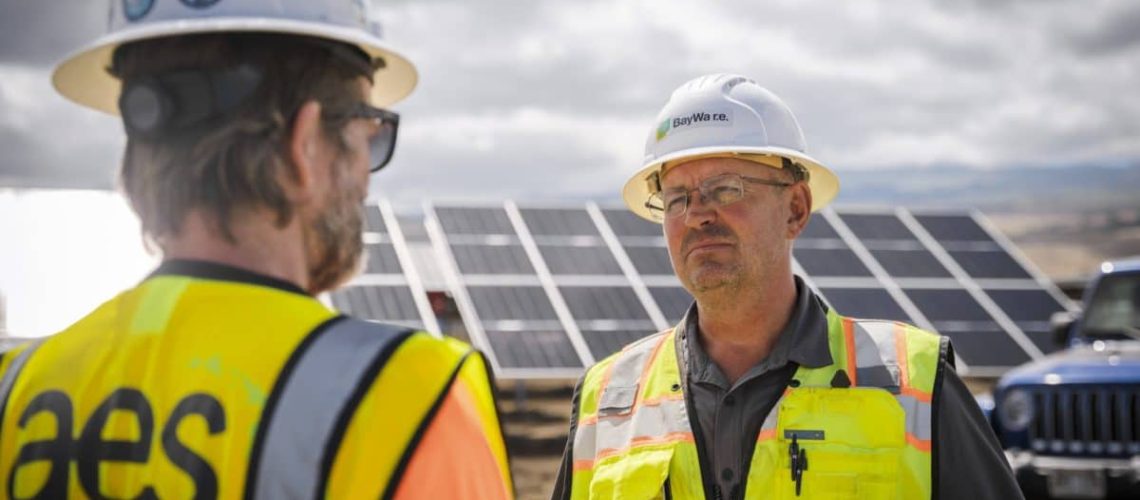BayWa r.e. will construct the solar-plus-storage facility on the Big Island of Hawaii, which will feature tracker-based bifacial solar modules and a lithium-ion battery system.
BayWa r.e. announced it will construct the Waikoloa Solar + Storage Project, an integrated solar photovoltaic and battery energy storage system owned and operated by The AES Corporation (AES) on Hawaiʻi Island. Local utility, Hawaii Electric Company signed a 25-year power purchase agreement for the energy produced from the project.
The 30 MW (AC)/43 MW (DC) solar and 30 MW/120 MWh storage project will be built on approximately 300 acres of leased land near Waikoloa Village in the South Kohala district of the island. The solar installation will feature single-axis trackers equipped with bifacial solar modules. The associated lithium-ion battery system will safely store energy for use at peak demand periods, and will also provide grid and ancillary services and enable the grid to accommodate more renewable sources while displacing conventional generation.
“We have completed several successful solar and storage projects in Hawai’i,” said Todd Lindstrom, chief operating officer at BayWa r.e. Power Solutions LLC. “We’re excited to support Hawaiʻi’s renewable energy leadership in the U.S. and about the growing relationships we have with the local community. We look forward to bringing more renewable energy solutions to the island as we grow.”
The project is expected to be completed late in 2022. Once complete it will produce enough electricity to power 13,600 households, contributing more than 7% of Hawaiʻi Island’s annual energy needs and result in the equivalent of total avoided fuel consumption of more than 511,000 barrels of oil over its 25-year lifetime.
Over the course of the project, 200 jobs will be created, and the project is expected to generate a total economic output of an estimated $47 million toward Hawaiʻi’s economy.
The State of Hawaii has a goal of producing 100% renewable energy by 2045, an effort to reduce reliance on expensive, imported fossil fuels. The state is rapidly increasing its solar energy installations, as it has gone from a ranking of 31st in the country last year to 16th this year, according to the Solar Energy Industries Association. Hawaii is currently receiving 17.68% of its electricity from solar with 1,477 MW installed as of Q1 of this year.



